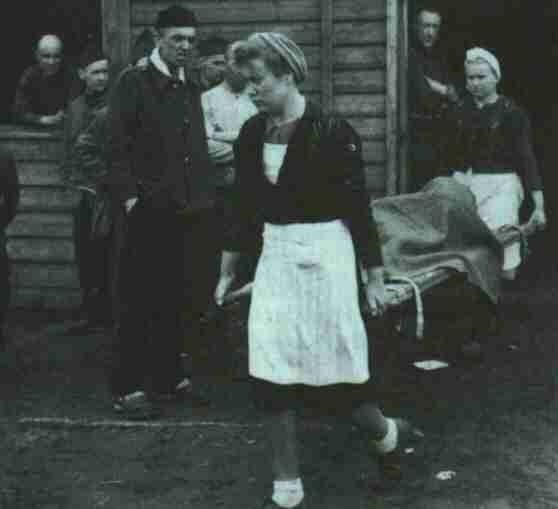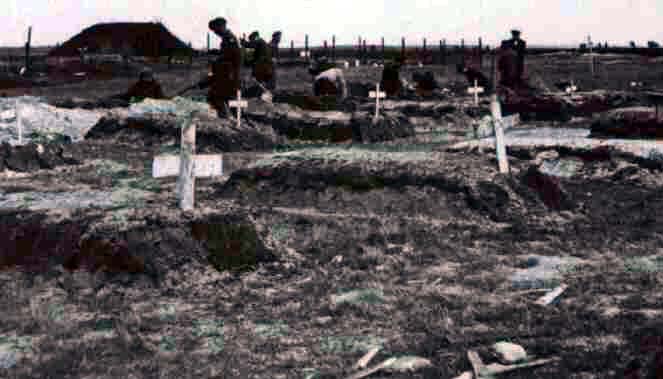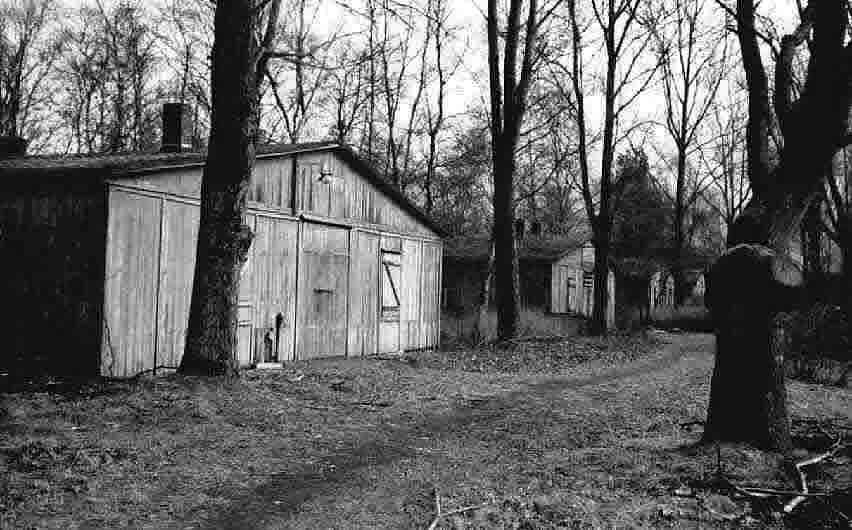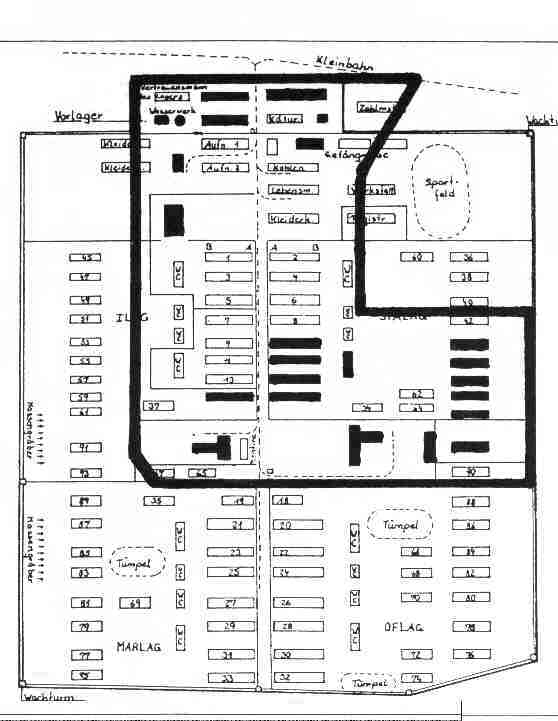Quotations from the Diary of Elfie Walter Submitted by: Alan Newark Scotland
May 3rd: "Today I did work really hard. Very tired. Don't want to write much. Food only barley soup, no bread, nothing else. Today, we did receive the first ill prisoners. British trucks and Red-Cross-cars brought them. They lay on stretchers. Virtually one only saw shaven heads. Everything else was so flat, so thin! Those are skeletons! 70 to 90 pounds they weigh, a medical orderly said. Till now, there are only men: Poles, Russians, but also Dutchmen, Belgians, Spaniards, Greeks, Jews, Gypsies, Rumanians, Hungarians. Some doctors and studied men are among them. They've got typhoid, spotted fever, dysentery, tuberculosis, gangrenous limbs, open and suppurating wounds, in which the rotten bandages can still be found. They lie completely apathic. First they have to be desinfected. Some of us are put to this work."
May 4th: "Today two further huts cleaned up. What a mess! No chance to wash ourselves, we look like pigs. When we did ask a British officer for aplace to clean ourseleves, he told us, to be not so fastidious. The prisoners had no occasion for washing for years. (....) Just now, I could view the desinfection ward, where the prisoners are cleaned, before they are transfered to the huts. It's really cruel. The girls wear rubber aprons and wooden clogs. The men lie naked on the tables. Before cleaning, the bandages have to be removed. Mostly, they are ripped off. Then, the men do cry terribly. The British soldiers stand guard and sometimes, they have to restrain the patients. I felt sick. I couldn't stand so much misery. With all this suffering, I'm glad to have been assigned to the typhoid ward."
May 4th, evening: "I had rejoiced too early. It's cruel in the typhoid huts. I'm lacking the words to describe the misery. Those are scarcely human beings. Skeletons are lying there on soiled beds, covered with faeces from head to toe and staring at us with huge eyes. What a stink! Faeces and pools of urine everywhere! In front of the huts, latrines can be found. Here squat the sick ones who managed to crawl there. But many cower in front on the ground, because they are too weak to sit on the rails. Seeing this, I'm ashamed of being German! What have we done! And my mother couldn't believe, that Germans were able to do such things! (....)"
May 5th: "Inge and me are doing duty in the hut on our own. (....) We've got to care for 103 patients. At 7 o'clock in the morning, we fetch breakfast from the kitchen. This is about 15 minutes walk away and we've got to wade through deep mud, carrying the heavy cans of porridge. And it's still raining. At 12 o'clock, we fetch lunch. This is diluted potato mash. In between, we have to administer the mush, then clean everything up, wash up, change the beddings, empty overflowing buckets, help with bed-pans. (....) If the patients have to move their bowels, they cry: "Nurse! I've got to shit!" Than one has to move fast with a bucket or bed-pan, because otherwiese they simply hold their bottoms out of the bed and defecate on the ground or Ð what has happened really Ð the ones in the lower bed on the head. This one cries out loud and we have to clean everxthing up. But they heave to be felt sorry for incredibly. Today, two did die. We had to carry them out. I've never seen a dead person before. Today, I had to carry two. When the first one died, I couldn't hold on and started crying. It was a Greek and near the end, he was wheezing and hitting his fists against the wall. When his fellow-patients, who were able to stand, saw me crying, they started to grin. They've seen so much, that dying didn't bother them at all. And the British also had their satisfaction at seeing, that we didn't know what to do at all. One had the feeling, they wanted to punish us for being German. That can be understood. People from the village collect the bodies. They are to be gathered in a barn and buried later."
May 6th: "This afternoon, I was close to despairing. Inge has dropped out now too and I'm alone with the work in the hut. So everything is going more slowly and some of the patients become really aggressive, frightening me in no small way. Thank God, there's also a room, where nice and educated people lie. They come from the Netherlands and Belgium. Some are doctors and then there is a lawyer, who comforts and encourages us. Just imagine this: the one, to whom so much unjustice was done by our people gives us courage! He says, what we are doing here, is really marvellous. But it's not fair, that young people, virtually still children, have to bring in order, what grown-ups have done wrong. This man had only made a negative remark about the Germans occupying the Netherlands. For this, he was sent to a KZ.(...)"
May 11th: "I'm home again, after a two hours journey. In Delmenhorst, we did walk from the market square home, in spite of the curfew. My parents couldn't speak for joy. Noone knew, where we've been the last days. (....) It's nice, to be home. But everything is different than before. I've seen too much terrible things. You need time to cope with this. Though they ask again and again, I've told nothing till now. Maybe, I fear, they won't believe anything. (....) Postscript: My parents were speechless, when I told them of those horrible things one evening. A world did collapse for them too."
From http://www.dokumentationsstaette-sandbostel.de/


